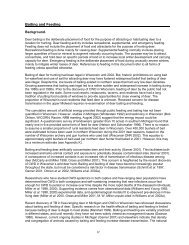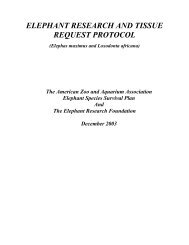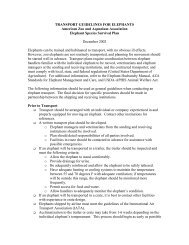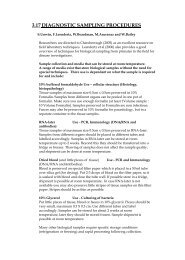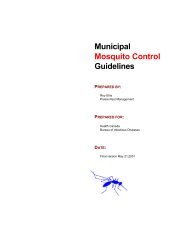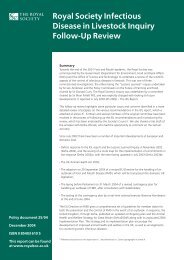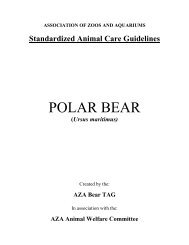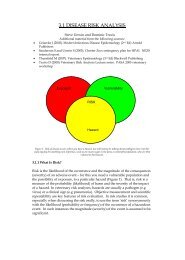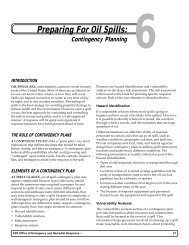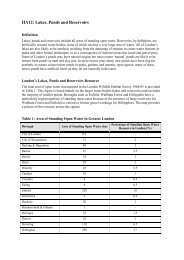Elephants Elephants - Wildpro - Twycross Zoo
Elephants Elephants - Wildpro - Twycross Zoo
Elephants Elephants - Wildpro - Twycross Zoo
You also want an ePaper? Increase the reach of your titles
YUMPU automatically turns print PDFs into web optimized ePapers that Google loves.
Pre-shipment Screening<br />
Prior to transferring elephants between collections, the following procedures<br />
should be undertaken:<br />
• Animal details & medical history supplied to the recipient before<br />
transport of animal<br />
• Physical examination by an experienced veterinarian.<br />
• Body weight measurement.<br />
• Haematology and serum biochemistry profiles.<br />
• Serum banking.<br />
• Determination of plasma vitamin E level.<br />
• Faecal parasite and bacteria screen.<br />
• TB culture from trunk washings.<br />
• Ensure vaccination status is current.<br />
• Other tests as required/appropriate (e.g. serum tests for brucellosis,<br />
leptospirosis, equine infectious anaemia, mycoplasma etc.).<br />
Quarantine<br />
A minimum period of thirty days quarantine away from other elephants is<br />
recommended for new arrivals into a collection. This may be easier to advise<br />
than implement, but there is no reason to abandon good principles of animal<br />
management simply because of practical difficulties. During the quarantine<br />
period various medical checks can be carried out if they have not already been<br />
conducted prior to transfer:<br />
• Body weight measurement<br />
• Determination of plasma vitamin E level.<br />
• Faecal parasite and bacteria screen (This should be repeated even if<br />
conducted before transfer).<br />
• Haematology and serum biochemistry profiles.<br />
• Physical examination by an experienced veterinarian.<br />
• Serum banking.<br />
• TB culture from trunk washings.<br />
• Vaccination status – ensure current and appropriate for local<br />
conditions.<br />
Signs of Ill Health<br />
General indications of ill health in elephants include the following:<br />
• Generally less alert.<br />
• Reduced movements of trunk, ears, tail, legs etc.<br />
• Localised lameness.<br />
• Altered water intake and urinary output (trunk tip should be moist if<br />
water intake is adequate).<br />
• Reduced food intake and alteration in faecal quantity & quality<br />
(including diarrhoea & constipation).<br />
115



